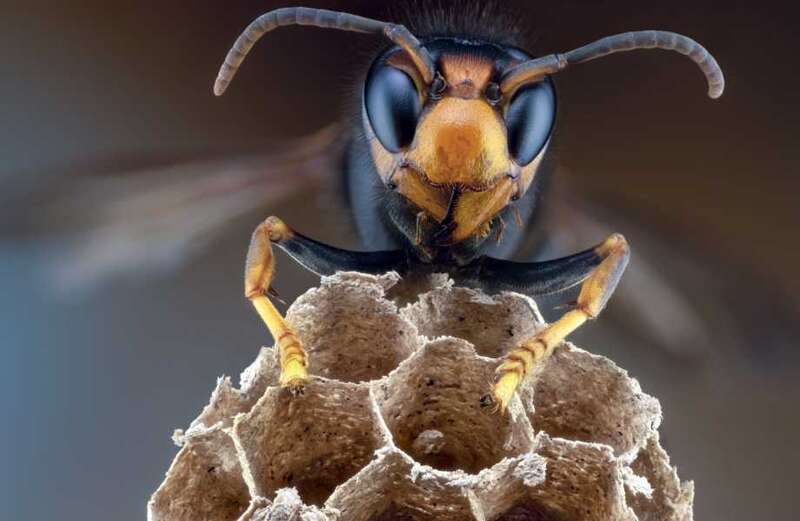AN URGENT warning has been issued over an Asian hornet "plague" amid record sightings.
Brits have been urged to report any sightings of Asian hornets after nature groups warned of a potential surge in the damaging non-native species.




Nicole Spence, the UK's Chief Plant Health Officer, has called for beekeepers and the wider public to remain vigilant to the presence of hornets.
Last year saw record numbers as sightings of the killer insect soar by a staggering 3,800 per cent.
Members of the public have been urged to report sightings via the Asian Hornet Watch App.
 Man fined £165 after outraging the internet by dying puppy to look like Pikachu
Man fined £165 after outraging the internet by dying puppy to look like Pikachu
The NHS warned the best way to remove a hornet stinger is to either brush or scrape the stinger sideways with your fingernail or the edge of a bank card.
Do not use tweezers to pull it out as you risk squeezing the poison into your skin, it added.
Asian hornets are usually 25cm long, have dark bodies, a wide orange stripe on the fourth abdomen section and yellow leg ends.
The invasive species threatens honey bees and other insect pollinators.
The Environment Department (Defra) said early trapping of the insect is fundamental to eradication efforts.
Recent flooding and warming temperatures have increased the risk of invasive species growing in the UK, according to the Wildlife and Countryside Link (WCL).
FUNDING
They added that the volatile conditions are likely to bring new species such as the Red Imported Fire Ant and the Chinese Mystery Snail.
Richard Benwell, WCL chief executive said: "Invasive species are already one of the biggest threats to the UK environment, from smothering waterways to outcompeting native species.
"They also cause billions of pounds in damage a year to homes and businesses."
The WCL among other organisations are urging the Government to mark, Invasive Non-native Species Week from today.
 Dog who 'always melts hearts' with his smile hopes to find a loving family
Dog who 'always melts hearts' with his smile hopes to find a loving family
"Investment in a fully-funded inspectorate and a strong invasive species strategy could make a contribution to halting nature's decline and creating a more resilient economy," Richard added.
Dr Rob Collins, director of Policy and Science at The Rivers Trust, said the conditions over the winter did little to keep the "wave of invasive species at bay".
He added: "The Government must properly support local conservation groups nationwide who are working tirelessly to stop our waterways being smothered by nature invaders."
The coalition is demanding more Government funding to triple their budget to £3million.
Last year, the National Bee Unit destroyed 72 nests in 56 locations, mostly in Kent.
Kent-based beekeeper Simon Spratley lost 15 of his 17 hives to the hornets last year.
He said: “In my 13 years as a beekeeper, I’ve never been more frightened."
In response to WCL's recommendation, a Defra spokesperson said: "Through our Invasive Non-Native Species Strategy, we remain committed to going even further to detect, protect and eradicate the threats they pose, while increasing co-ordination and co-operation with the public, land managers and businesses to deliver this."





































